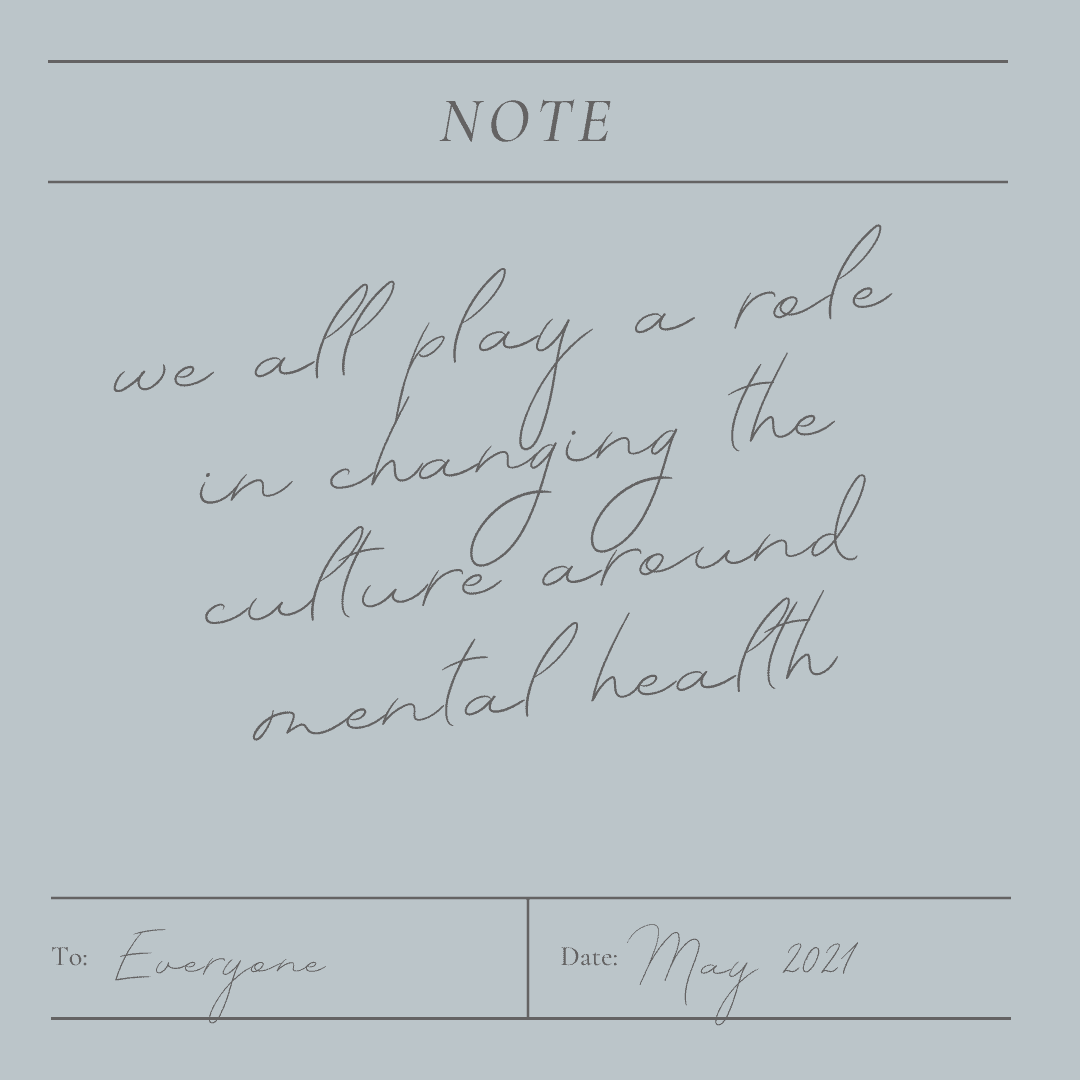
Speak Up and Make a Difference: How to Be a Mental Health Advocate

Time to put aside design insights and inspiration for a moment, and shine light on a topic that deserves our full attention: mental health.
With numbers continuing to rise, suicide has truly become an epidemic and mental illness is impacting more people than ever before.
One out of every five people struggles with mental illness, so if it isn’t you, it’s most likely someone you love. Always know you are not alone in your journey, whether that’s with your own illness, or supporting someone else’s, and together, we can open up the conversation and change the way we view mental health.
After losing my brother Mark to suicide in 2014, I decided to take action and advocate for mental health awareness, both by launching my charity, Under the Same Sky, and taking intentional steps to support friends and family day-in and day-out.
Today, I wanted to take a moment to share some insights I’ve learned over the past several years through my own education, and also highlight advice from Shannon Donnick, the Senior Manager of Loss and Healing Programs at the American Foundation for Suicide Prevention, an organization that has helped support my family in the aftermath of Mark’s death, and an organization I now help fund through UTSS.
This Mental Health Awareness Month and beyond, it’s vital we stand up, speak up, and act. Let’s all become mental health advocates.
How to Become a Mental Health Advocate in Your Everyday Life
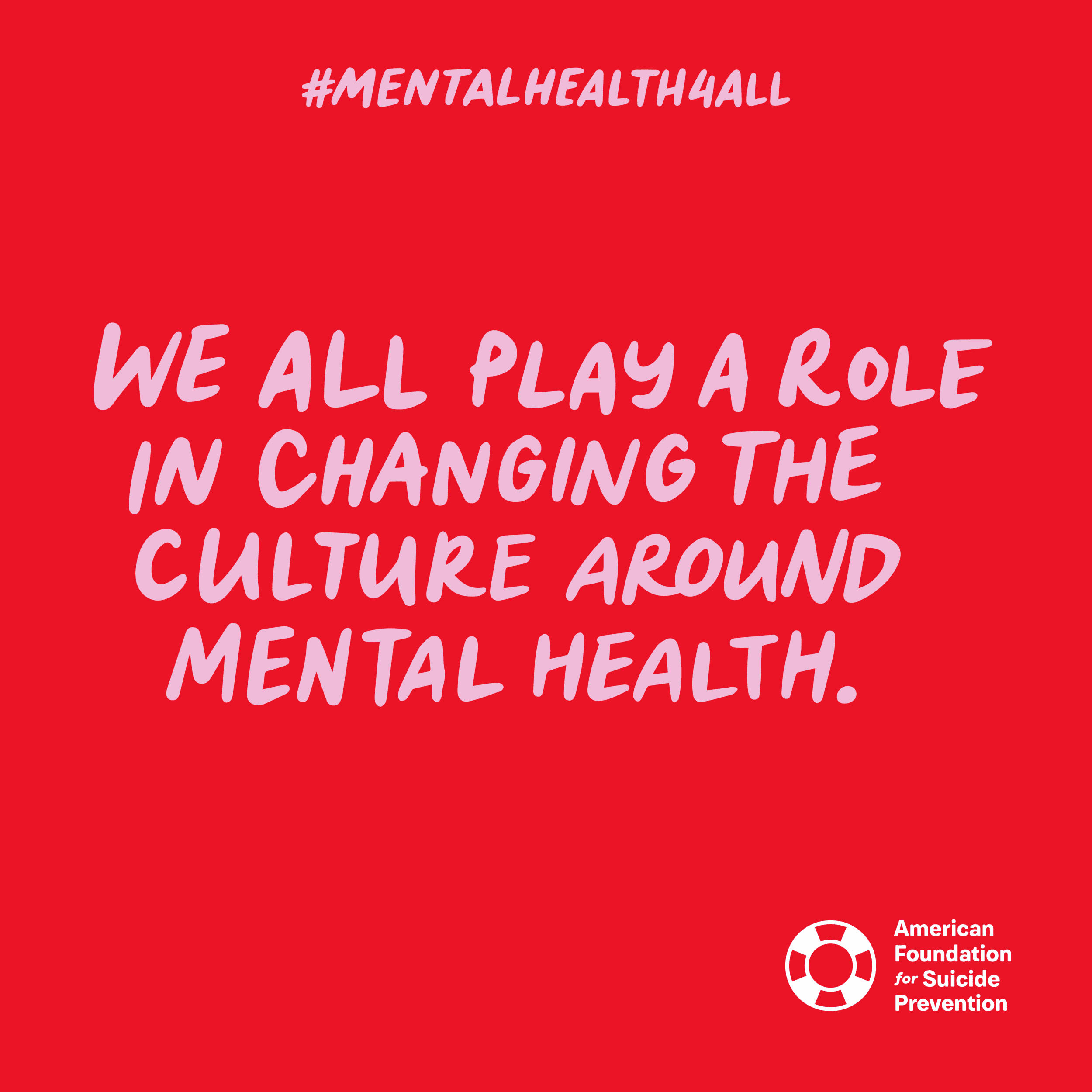
Educate Yourself on the Impact and Magnitude of Mental Illness
The first step in becoming an advocate is to educate yourself.
Mental illness is exactly that: an illness. It can be hereditary or caused by environmental factors, and it can impact you or your loved ones at any point in life. It truly is a silent disease, as many suffer on their own, without ever speaking up on their pain.
Educate yourself on the risk factors, how to recognize warning signs of mental health conditions, and what steps to take if you or a loved one exhibit symptoms of a mental health condition in an effort to be a mental health advocate. AFSP has many incredible resources to help you learn more.
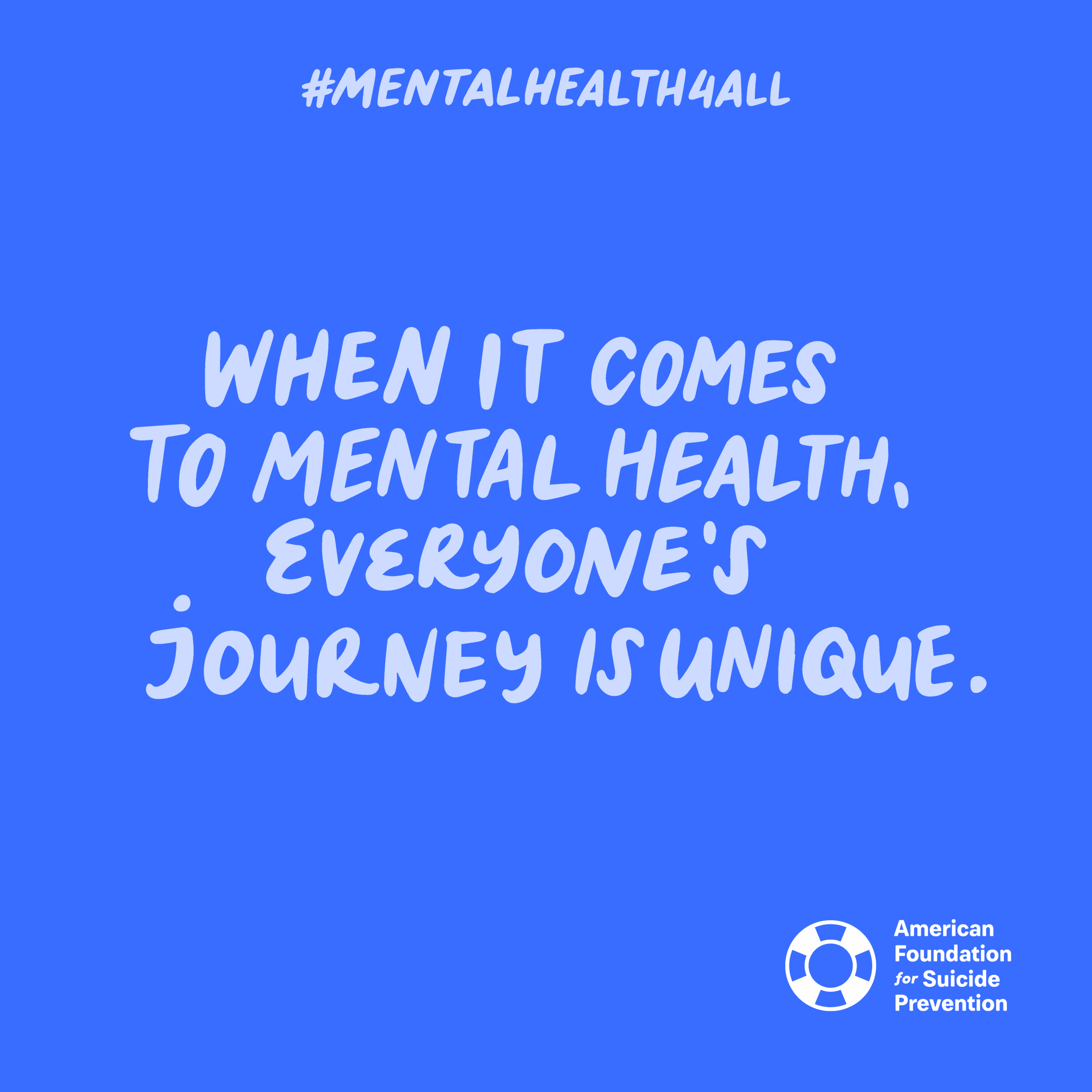
Take Care of Your Own Mental Health
“The best way we can support those we care about most is by first taking care of ourselves,” says Shannon. Just like our physical health, we should always be working towards recognizing and caring for our mental health.
Here are a few self-care strategies to help you prioritize your own mental health first:
-
Start a gratitude journal
-
Prepare your favorite meal
-
Make your space comfy and cozy
-
Have a chat with your best friend, either virtual or maybe now in person!
-
Set boundaries with your media consumption
-
Make a playlist of your favorite songs (and share with your friends)
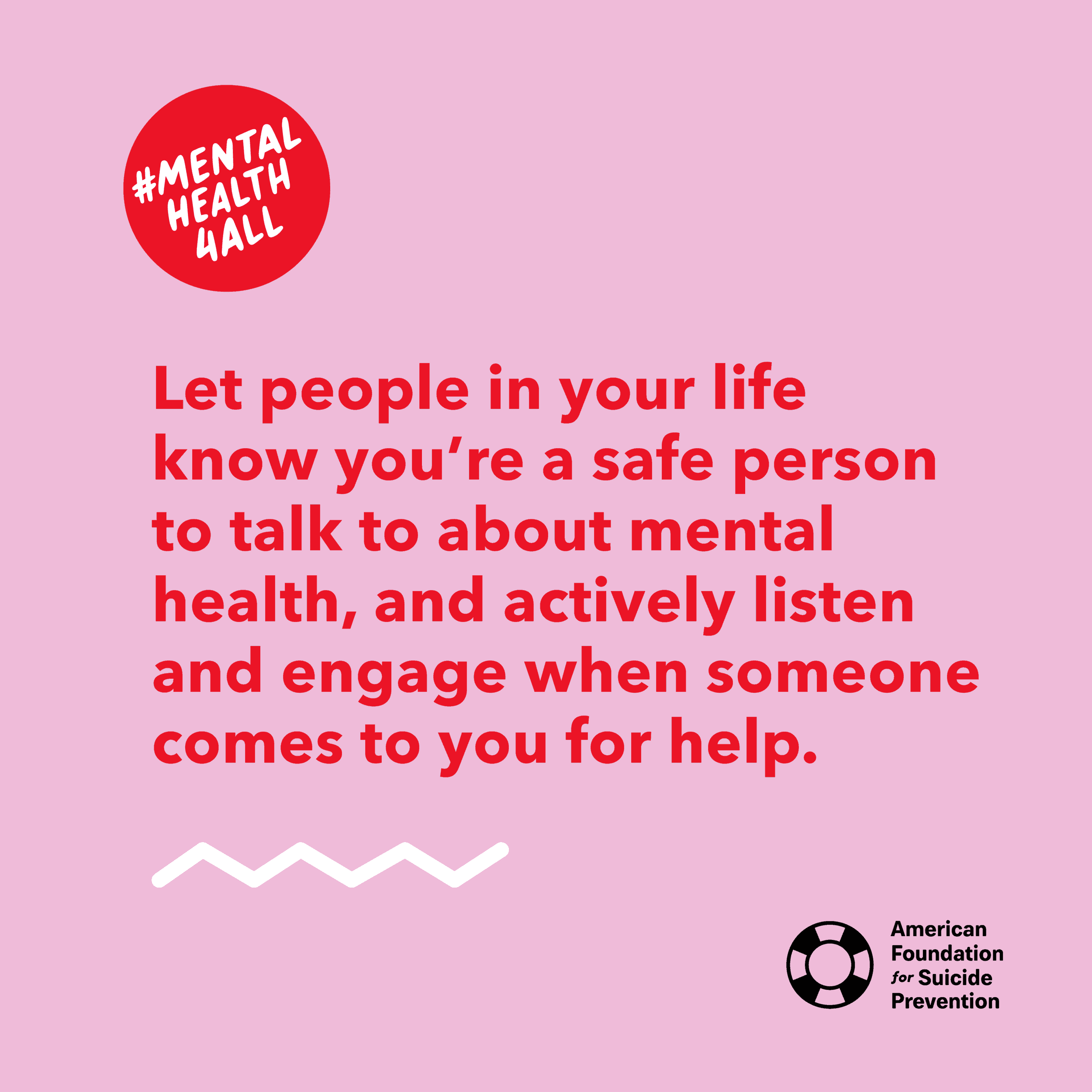
Embrace the Power of Talking
Mental health advocates are life savers. The role requires a ceaseless commitment to opening the conversation and sharing your feelings, encouraging others to share their own.
“Talk to others in your life about your own mental health and ask them about their mental health. By sharing about your own mental health you are communicating that you are a safe person for the people in your lives to open up to. By asking about their mental health, you open the door for them to share their struggles,” shares Shannon. “There is research that shows that just by talking about mental health, we can all make a difference”
If you’re not sure how to begin these conversations, Learn more are some #RealConvo guides that can help get you started. While this may feel difficult or uncomfortable at times, always remember it truly could save a life.
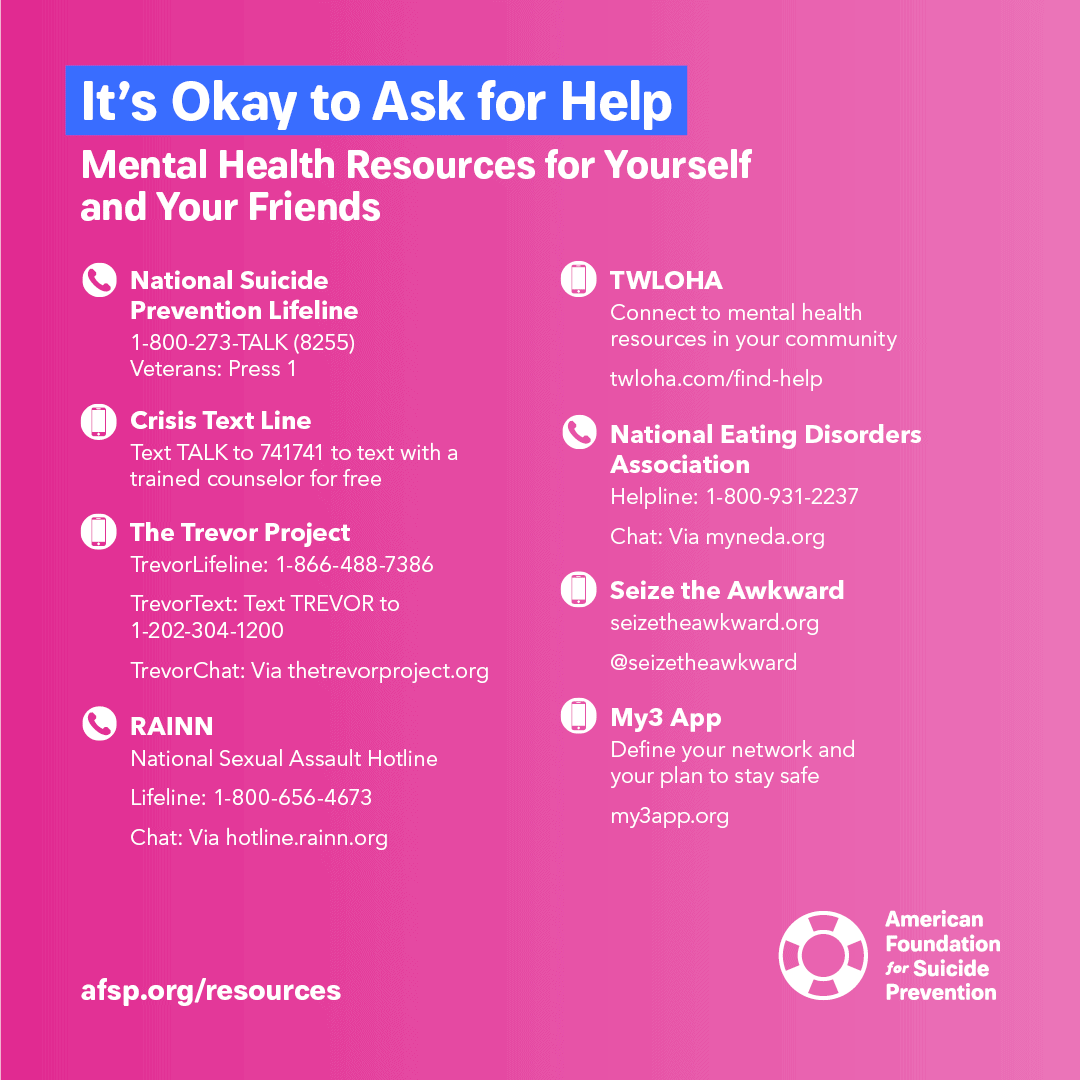
Support the Mental Health of Your Loved Ones and Friends
When a loved one suffers a loss or is struggling with a mental health illness, it’s common to feel helpless or fearful of not knowing what to say or do. However, support from loved ones can make a significant difference in the lives of those suffering. No book or website can tell you exactly what you should do, because every person is different and will respond in different ways. But it all begins with asking questions and truly listening to the answers.
Read more Learn more on how mental illness can affect your loved one’s behavior and how you can support them.
Help Educate Our Youth on Mental Health
In order to help change our future, we must focus our attention on our children. Help to instill a value for mental health at a young age by challenging yourself to have deep and age-appropriate conversations with the children in your life. Model openness and create a safe space that encourages communication. On Our Sleeves, an organization dedication to children’s mental health, has some wonderful resources to help you navigate challenging conversations and situations with the young ones.
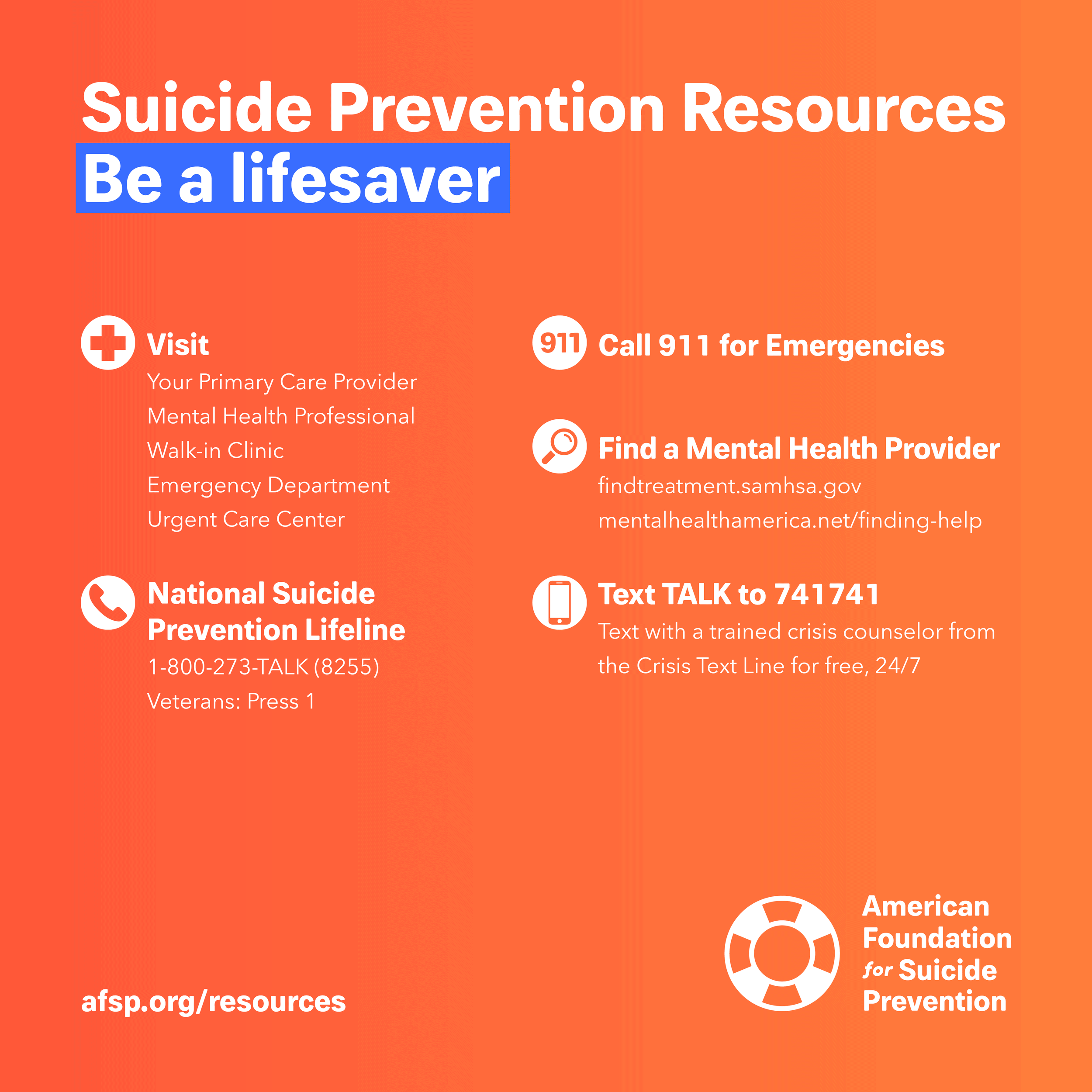
Check in with Your Co-Workers
It can be difficult to know what to do when you suspect your co-worker is struggling — especially since your relationship with them may not be as personal as that with a loved one. But, you always have the opportunity to make a positive impact one someone’s life, and Learn more are some helpful ways you can connect deeper with a coworker or employee.
More Ways to Get Involved
Looking to make a larger impact on your community, too? Below are several ways you can join the mission to prioritize mental health and end the suicide epidemic.
-
Sign up as a volunteer field advocate to become a vital part of AFSP’s large grassroots advocacy network
-
Find your local AFSP chapter and become a member to learn more about mental health resources available to you and your family and friends.
-
Consider joining AFSP’s Healing Conversation program, which provides suicide loss survivors with an additional layer of support.
Donate! We’re proud to donate all Learn more raised through Under the Same Sky to this program. Consider donating Learn more.
Are you in a crisis? Call 800.273.8255 or text TALK to 741741
amy kartheiser design
home
about
services
portfolio
press
contact
Copyright © 2026 Amy Kartheiser Design | Website design by the la.rue creative studio